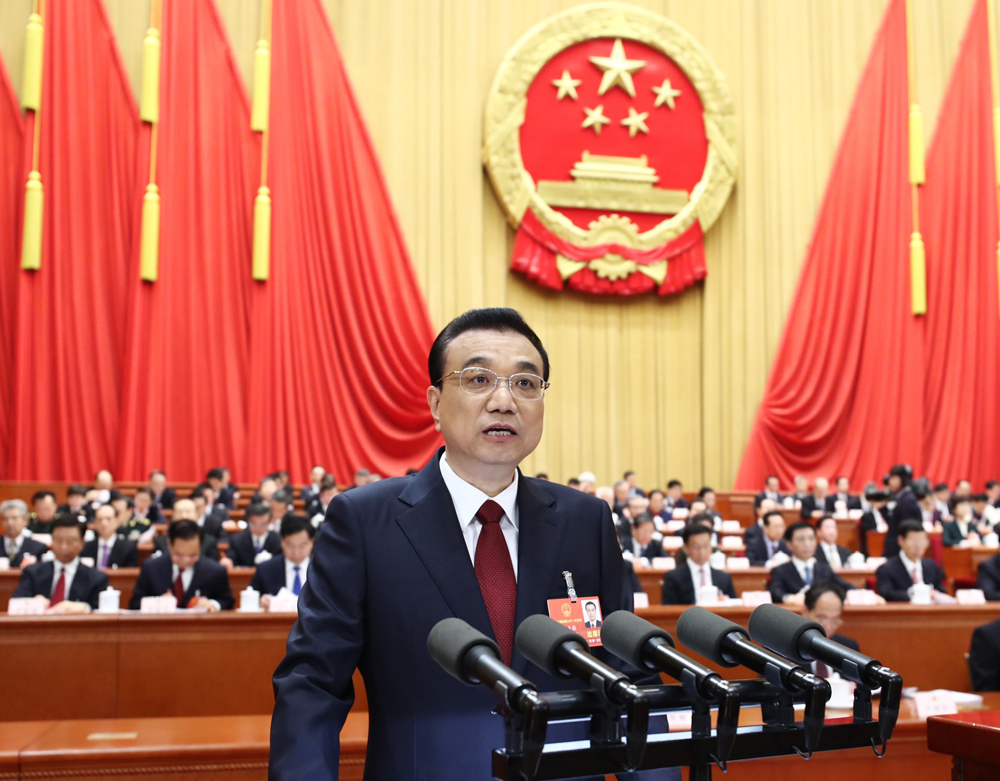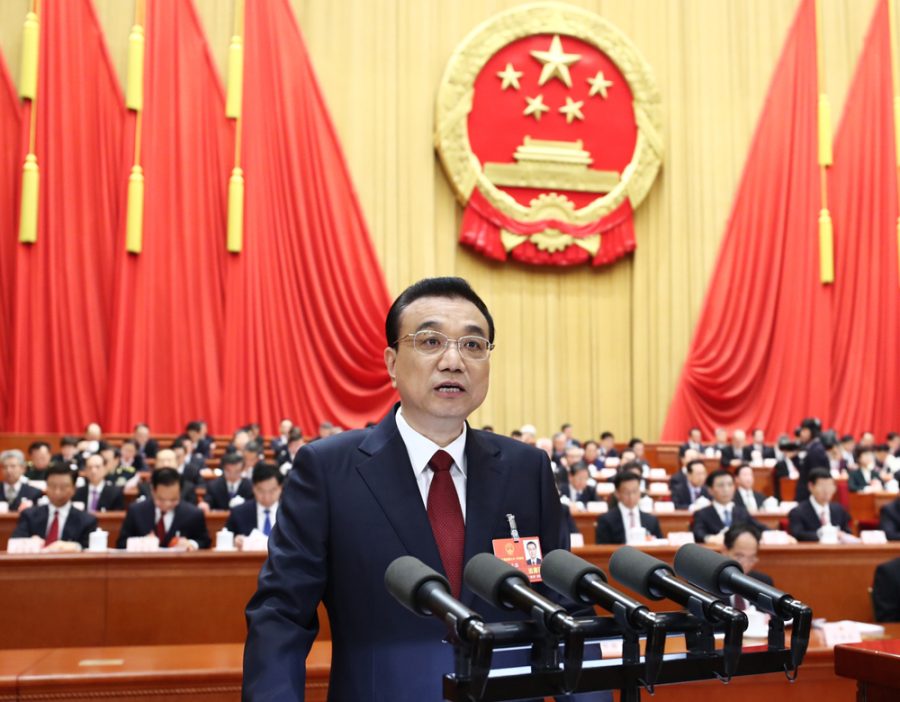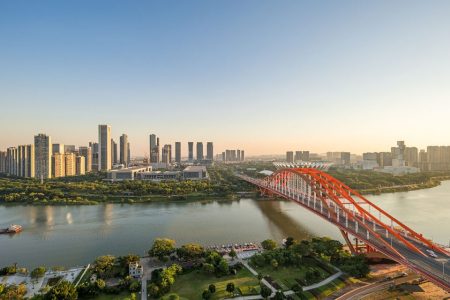China will unveil and implement the development plan for the Guangdong-Hong Kong-Macao Greater Bay Area, among other moves to promote coordinated regional development of the country this year, Premier Li Keqiang said Monday.
The country will promote in all areas mutually beneficial cooperation between the mainland, Hong Kong, and Macao, Li said Monday morning in a government work report delivered to the first session of the 13th National People’s Congress in Beijing.
Over the past five years, exchanges and cooperation between the mainland and Hong Kong and Macao have been steadily enhanced as the construction of the Hong Kong-Zhuhai-Macao
Bridge has been completed, Hong Kong and Macao have thrived and remained stable.
The Guangdong-Hong Kong-Macao Greater Bay Area is one of China’s regions that are called for coordinated development. Others include the Beijing-Tianjin-Hebei area and the Yangtze Economic Belt.
According to the report, the country will make solid progress in the coordinated regional development strategy, and create a new landscape in regional development.
He said the cooperation between the mainland and the two special administrative regions have been deepened, as the Hong Kong-Zhuhai-Macao Bridge has been completed, whilst Hong Kong and Macau remained prosperous and stable.
“We must continue to fully and accurately implement the ‘One Country, Two Systems’ principle, strictly follow the constitution and the Basic Law, and fully support the governance of the governments and chief executives of the Hong Kong and Macau Special Administrative Regions,” Li said.
In is speech Chinese Premier Li Keqiang do not mention “Hong Kong and Macau governed by its people” with “high degree of autonomy”.
Li said there has been new progress in work relating to Hong Kong, Macau and Taiwan over the past five years. However, he did not mention Hong Kong independence, despite a stern warning in last year’s report that the idea “would lead nowhere.”
“The practice of ‘One Country, Two Systems’ has been consistently enriched and developed,” Li said. “The authority of the constitution and the Basic Law has been further highlighted.”
The two key phrases were mentioned by Li in 2017, but were also omitted in 2014.






